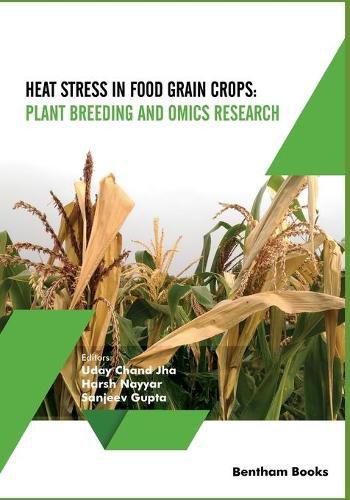Readings Newsletter
Become a Readings Member to make your shopping experience even easier.
Sign in or sign up for free!
You’re not far away from qualifying for FREE standard shipping within Australia
You’ve qualified for FREE standard shipping within Australia
The cart is loading…






Heat Stress In Food Grain Crops: Plant Breeding and Omics Research is a timely compilation of advanced research on heat stress affecting crop yield, plant growth & development of common food grain and cereal crops. Chapters in the book cover several aspects of crop science including the identification of potential gene donors for heat tolerance, physiological mechanisms of adaptation to heat stress, the use of conventional and modern tools of breeding for imparting tolerance against terminal temperature stress and precise mapping of heat tolerant QTLs through biparental and genome wide association mapping. The use of genomics and phenomics methods is focused on through chapters dedicated to important crops such as groundnut, pearl millet, maize, chickpea, mungbean and wheat. Authors of the respective chapters explain the importance of harnessing a diverse crop genepool for sustaining crop production under conditions of increasing heat stress. Readers will be able to understand the relevance of functional genomics in elucidating candidate genes and their regulatory functions contributing to heat tolerance.
$9.00 standard shipping within Australia
FREE standard shipping within Australia for orders over $100.00
Express & International shipping calculated at checkout
Heat Stress In Food Grain Crops: Plant Breeding and Omics Research is a timely compilation of advanced research on heat stress affecting crop yield, plant growth & development of common food grain and cereal crops. Chapters in the book cover several aspects of crop science including the identification of potential gene donors for heat tolerance, physiological mechanisms of adaptation to heat stress, the use of conventional and modern tools of breeding for imparting tolerance against terminal temperature stress and precise mapping of heat tolerant QTLs through biparental and genome wide association mapping. The use of genomics and phenomics methods is focused on through chapters dedicated to important crops such as groundnut, pearl millet, maize, chickpea, mungbean and wheat. Authors of the respective chapters explain the importance of harnessing a diverse crop genepool for sustaining crop production under conditions of increasing heat stress. Readers will be able to understand the relevance of functional genomics in elucidating candidate genes and their regulatory functions contributing to heat tolerance.